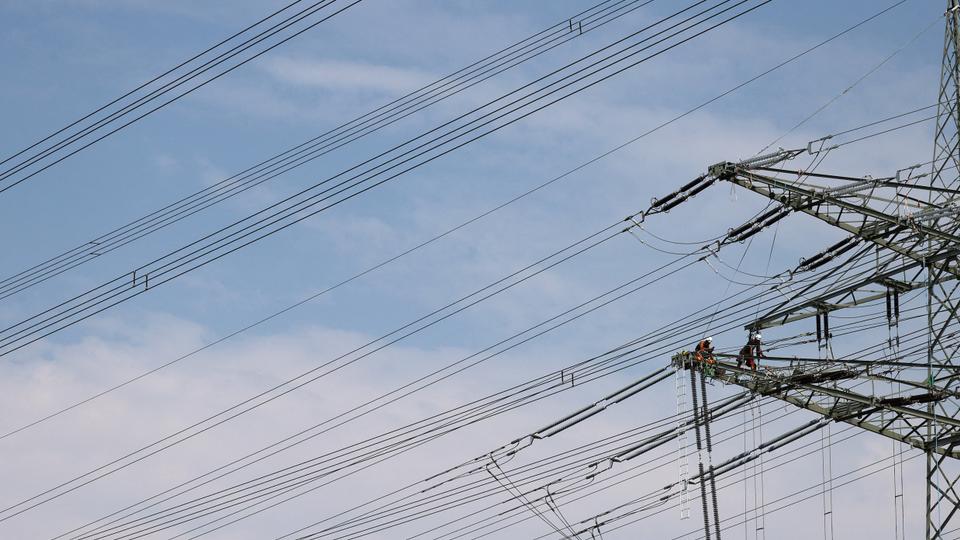Wholesale prices for electricity and gas are shooting up to heights that were unimaginable not long ago. Mirko Schlossarczyk, a partner at the energy consulting firm Enervis, explains in an interview with ntv.de what’s going on, what this means for consumers and how policymakers need to react.
ntv.de: If you think back a year: Could you have even imagined prices like we are seeing on the electricity and gas exchanges these days?
Mirko Schlossarczyk: No! On Monday, there was a jump of well over 100 euros in the day-ahead price for a megawatt hour on the power exchange. That is significantly higher than the absolute price was before this crisis. This extreme volatility shows the absolute nervousness that has gripped the market.
- The White House downgrades growth forecast for the US economy
- Pelosi’s husband pleads guilty to drunk driving
Exchange prices for gas – and to a lesser extent for electricity – have been rising for some time. Since last week, however, they seem to have gone completely crazy, with unprecedented price jumps. What happened?
Since at least the start of the war in Ukraine on February 24, there has been concern in Europe that gas could be in short supply in the coming winter. This has been fueled time and again by short-term and incalculable announcements of gas supply interruptions. Now, however, fears are increasingly spreading that there could also be a real shortage on the electricity market, that demand could no longer be met. Several crises are coming together: In France, more than half of the nuclear power plants are currently off the grid, mainly because of maintenance work and technical defects, but also because of low water levels in the rivers from which they draw cooling water. Due to the extreme drought throughout the Alpine region, the availability of hydroelectric power plants is exceptionally low. These problems and crises, including curtailed gas supplies from Russia, are just coming together like under a burning glass. But despite everything, electricity prices of more than 700 euros per megawatt hour can no longer be explained solely by fundamental factors such as the increased price of gas. Obviously, a heated market psychology and the sheer panic of some market participants that they will not be able to meet their supply obligations are also at work here.
Is this fear justified in your opinion?
These extreme risk premiums that are probably being paid at the moment don’t seem comprehensible from a fundamental point of view. I think it’s unlikely that there will actually be a significant power shortage in Europe. The situation at the French nuclear power plants should ease again in the coming months, as should the supply of hydropower.
Who is driving the stock market price for energy so extremely at the moment? Is there also speculation involved or are these companies that want to hedge against a feared extreme energy shortage?
It is not really transparent who is doing this in detail. What is obvious is that a lot of electricity is currently being bought from the European market, especially from France. Some suppliers are under extreme pressure. The French are running out of electricity from their nuclear power plants. To meet their supply obligations, they have to stock up – no matter what the cost.
What does all this mean for consumers? When and how will these price increases hit end customers?
On the one hand, these swings on the exchanges are just a snapshot. Utilities usually cover themselves over long periods and use hedging strategies to do so. On top of that, the end customer price, especially for electricity, is largely made up of surcharges and taxes. This means that these latest increases will probably not reach consumers until next year, and not to the full extent. On the other hand, price increases of 2,000 percent or more year-on-year, as is currently the case on the stock exchange, will also have a severe impact on end customers.
What can and should policymakers do in this situation?
One thing is absolutely clear: Politics should at least partially cushion the enormous impact on consumers. This is not an energy policy issue, but first and foremost a social and sociopolitical issue. The challenge is: how to protect consumers but at the same time maintain the steering effect of the price. After all, given the current situation and the coming winter, the top priority should be to save gas in particular. As the gas levy shows, this is a difficult balancing act: First, the government raises the price with the gas levy, which should encourage savings. Then it lowers the value-added tax, significantly reducing the incentive to save. France is currently showing how not to do this. There, end consumer prices for electricity are capped. While the utilities have to buy electricity at record prices, nothing is happening on consumers’ bills. They are not even encouraged to save.
Max Borowski spoke with Mirko Schlossarczyk.

